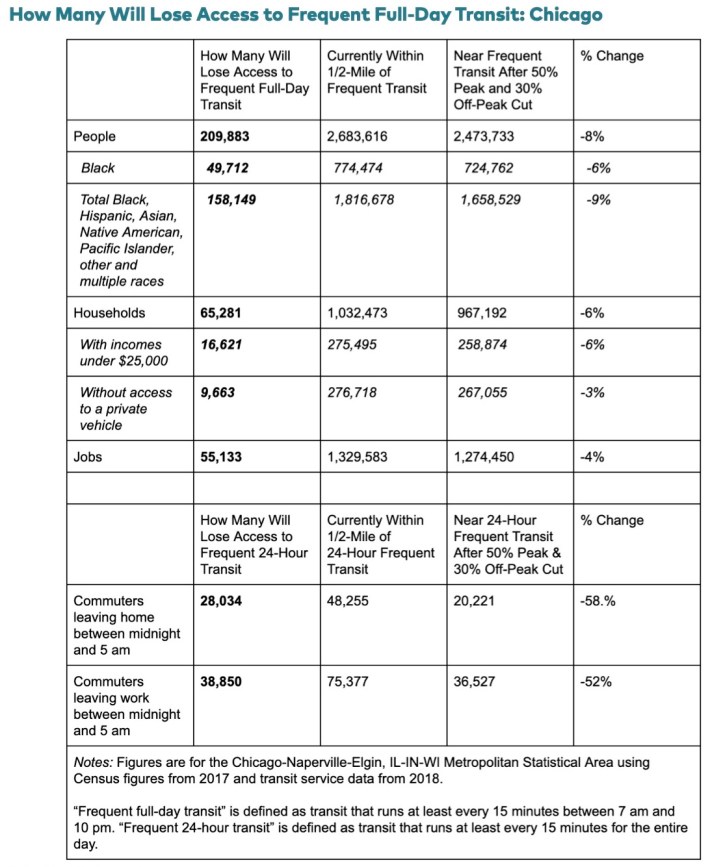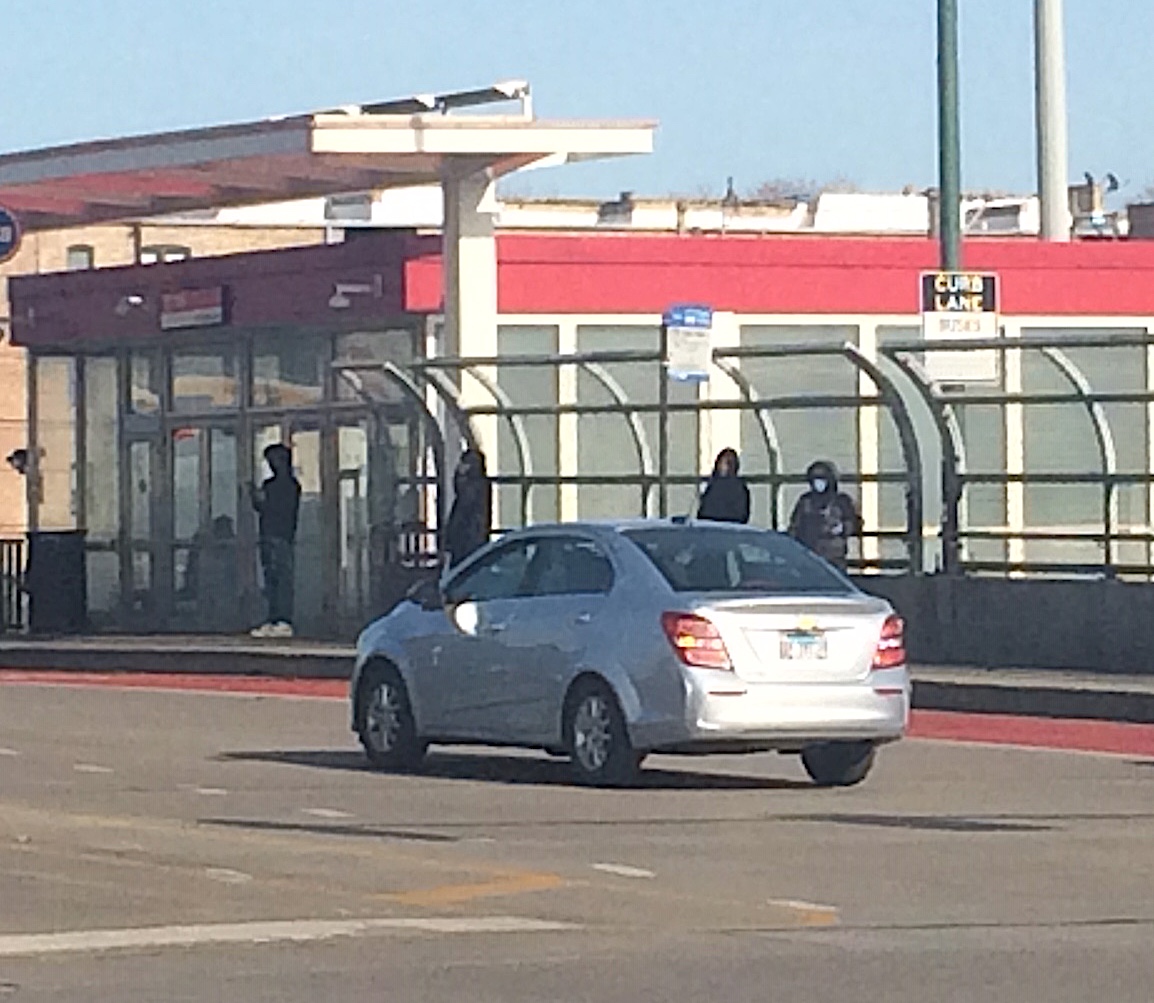Transit agencies across the country are facing massive headwinds during the COVID-19 pandemic as ridership and fare box revenue has plummeted, and the Chicago area's CTA, Metra, and Pace are no exception. The federal CARES act included a bailout for public transportation that so far has been a lifeline for transit.
But as that money runs out, cuts to transit averaging 40 percent across major U.S. urban regions would lead to over 3 million residents and 1.4 million jobs losing access to frequent bus or train service, according to a study released today by TransitCenter (a Streetsblog Chicago funder) and the Chicago-based Center for Neighborhood Technology. The report finds that, without additional federal support for transit, in Chicagoland over 55,000 people would lose access to frequent transit near their workplace, and almost 210,000 residents would lose access to frequent transit near their homes.
The report, titled "Stranded," examines data across 9 U.S. regions including Atlanta, Boston, Chicago, Cincinnati, Denver, Miami, New York City, Philadelphia, and Seattle. The study finds that in Chicagoland, 9,663 households that don't own cars would lose access to frequent transit for getting to to jobs, retail, healthcare other essential destinations. 2nd and 3rd shift employees would would be hit especially hard by the service cuts. 28,000 commuters who leave home between midnight and 5 a.m. would lose access to frequent transit; as would 38,850 commuters who leave work between midnight and 5 a.m.
African Americans, Latinos, and other people of color would be disproportionately impacted by service reductions. In the Chicago area, Black people make up 17 percent of all residents, but 24 percent of people who would lose access to frequent full-day service. Together POC and/or Latinos make up 47 percent of Chicagoland residents, but 75 of people who would lose access to frequent full-day service.
Overall, the report found, 65,281 households would lose access to frequent full-day transit if no action is taken by the feds.

Transit agencies are requesting $32 billion in federal relief aid to keep running at full strength in light of these impacts. Negotiations between Congress and the Trump administration over the next COVID relief package have been dragging on slowly, and it's not clear if public transportation will be included. Without a bailout, transit officials in several cities have warned that they may need to cut service by 40 percent. The analysis models what those cuts would mean for service frequency in Chicagoland if rush-hour was reduced by 50 percent while off-peak service was cut by 30 percent.
"Public transportation is a public good that millions of Americans—including many essential workers—rely on every day to get to work, healthcare, grocery stores, and other important services," said Beth Osborne, director of the lobbying group Transportation for America, in a statement. "Yet Congress is letting this public good crumble. COVID-19 is putting unprecedented financial stress on transit agencies to the point where transit will not return to full service when this pandemic subsides. If we want the economy to recover then we need people who can work to be able to get to work. Congress needs to step up and pass the $32 billion in emergency relief that public transportation needs to survive this crisis.”
"Without more emergency aid, the fiscal crisis will force transit agencies to make deep service cuts," TransitCenter director of research Steven Higashide stated. "Our analysis shows this would have profound impacts. Millions of people would lose access to high-quality transit near their home and workplace. Late-night commuters trying to get to essential jobs would be stranded. And, as has happened so often in this pandemic, the blow would fall most heavily on Black riders and communities of color.”
To prevent this doomsday scenario from happening, the Active Transportation Alliance is asking Chicagoland residents to contact elected officials to ask them to support the $32 billion in emergency funding for transit. Click here to lend your voice to the campaign.




